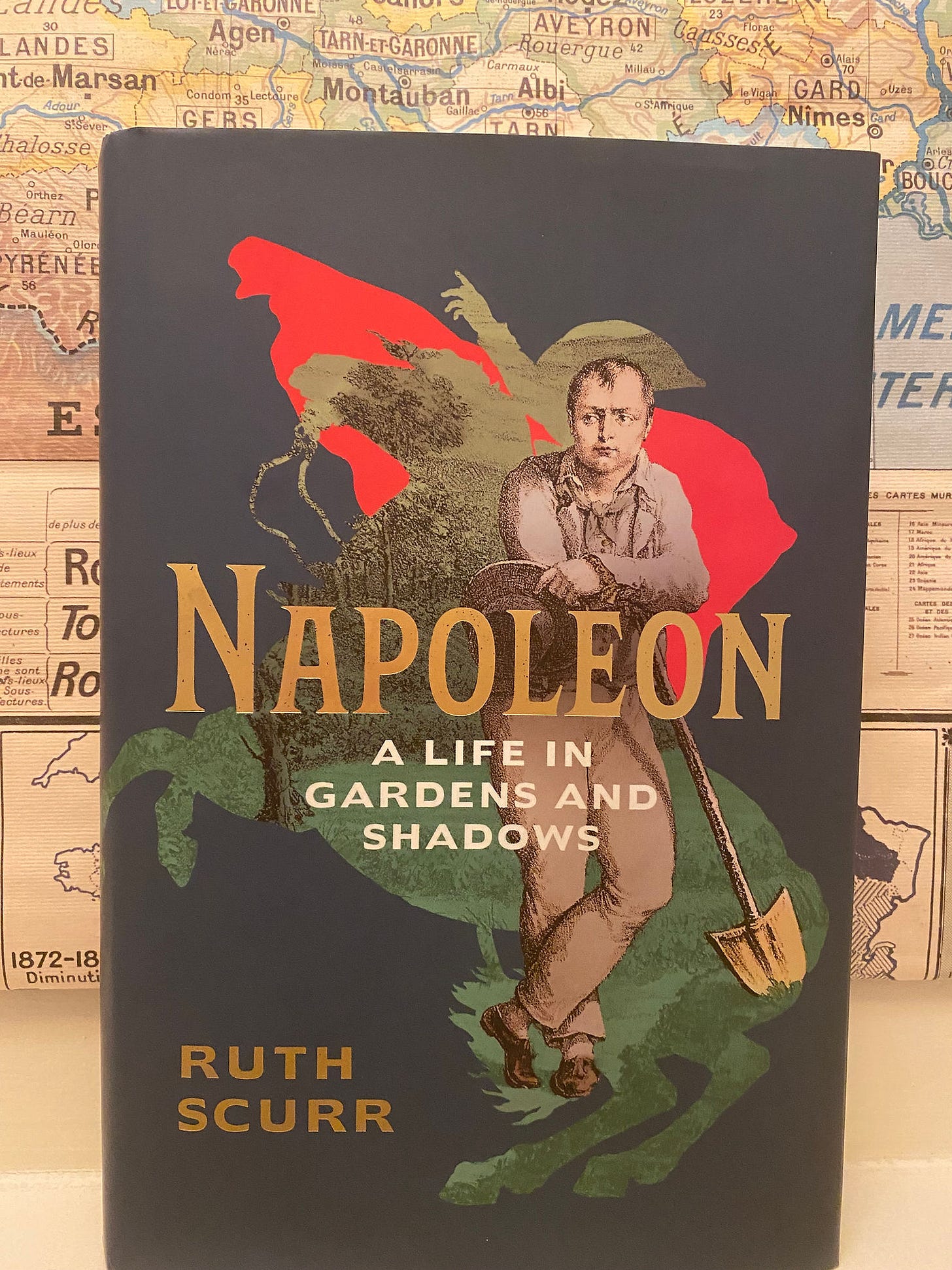Review of NAPOLEON: A Life in Gardens and Shadows
A unique, compact biography that is much more than a biography.
Not your everyday biography. Not your everyday biographer. Ruth Scurr is a professor at Cambridge who has, according to many, redefined the art of biography. If this book is any measure of such praise, I must agree. She goes after maybe the most singularly remarkable story in our modern history from an angle that allows one to follow a man’s progress from obscurity to empire to isolation in a mere 300 pages. She provides a platform with which to grasp that most ungraspable of human events, the event that give birth to Napoleon, the French Revolution. So much is suddenly accessible. Napoleon is human. The Revolution is put into a context that makes sense.
It is a deeply researched story that respects to some extent the traditional arc of the biographical narrative but all along the way Scurr is laying down a mosaic, tile by tile. She is creating the perfect “garden” that Napoleon tried to, in so many different ways, throughout his life. Imagine a typical portrait set within a vast rural background. The subject is front and center but the canvas around him is filled with art and nature. Scurr does a deep focus on the background and in doing so brings her subject alive. The gardens (of which there many) are clearly metaphorical but not once are we told that. Rather, it all just takes shape … much like the life of its subject.
Why did she write about this larger-than-life figure from this point of view? Certainly, his interest in gardens, plants and science was genuine and deeply felt but it all took a back seat to power, victory and a megalomania that both terrified and mesmerized the world around him. Some of his greatest admirers were the English he bitterly fought with for over 20 years. He was the modern world’s Alexander the Great. Both created vast empires in a blink of an eye and reshaped much of the culture they conquered. Napoleon resists good biography because his story feels so much like an epic from the past. The fact that much of what he strove to do was a product of enlightened thinking and that there was no satanic impulse that controlled his every move, makes him more a mythic character than some mere mortal who died just under 200 years ago. For this reason, Napoleon is best viewed through a side mirror than head on. He comes alive in the works of Victor Hugo and even Patrick O’Brien in ways no biographer can approach. The relationship between biography and myth is a complicated one and I suspect Napoleon rests on the fault line that both separates and joins the two.
Warning … there is a lot about plants and stuff. Like vegetables at my table, I found them a perfect diet at times and less at others. Scurr provides a Chronology of his life at the front that is indispensable. The Chronology is enough to leave you aghast that one person could have set in motion such a tectonic series of events over such a short span of time. This is where the garden is such an apt metaphor. I am going to read more by Scurr. She is on to something. The critics are right.
Napoleon: A Life in Gardens and Shadows
Ruth Scurr (2021)
303 pages


